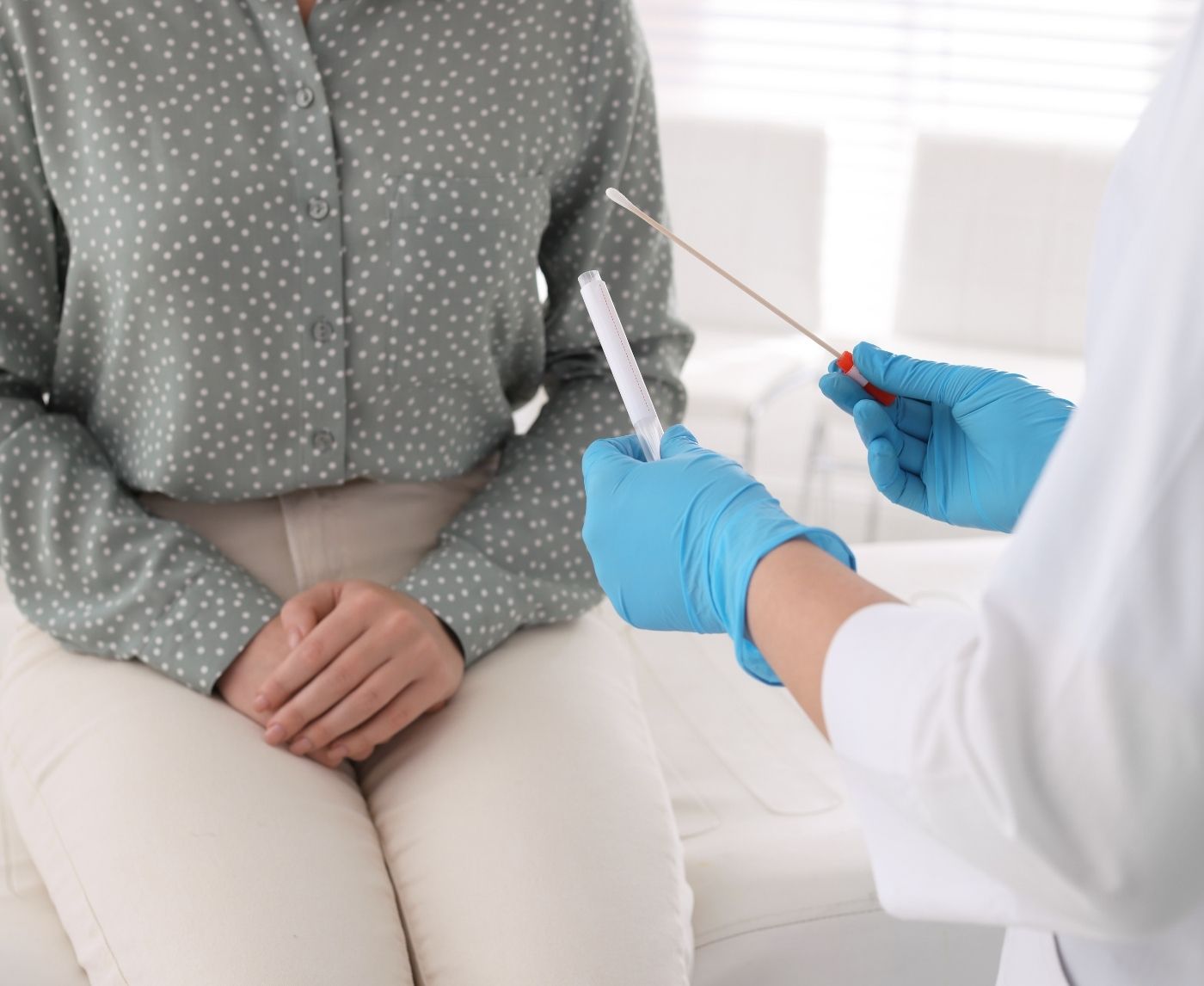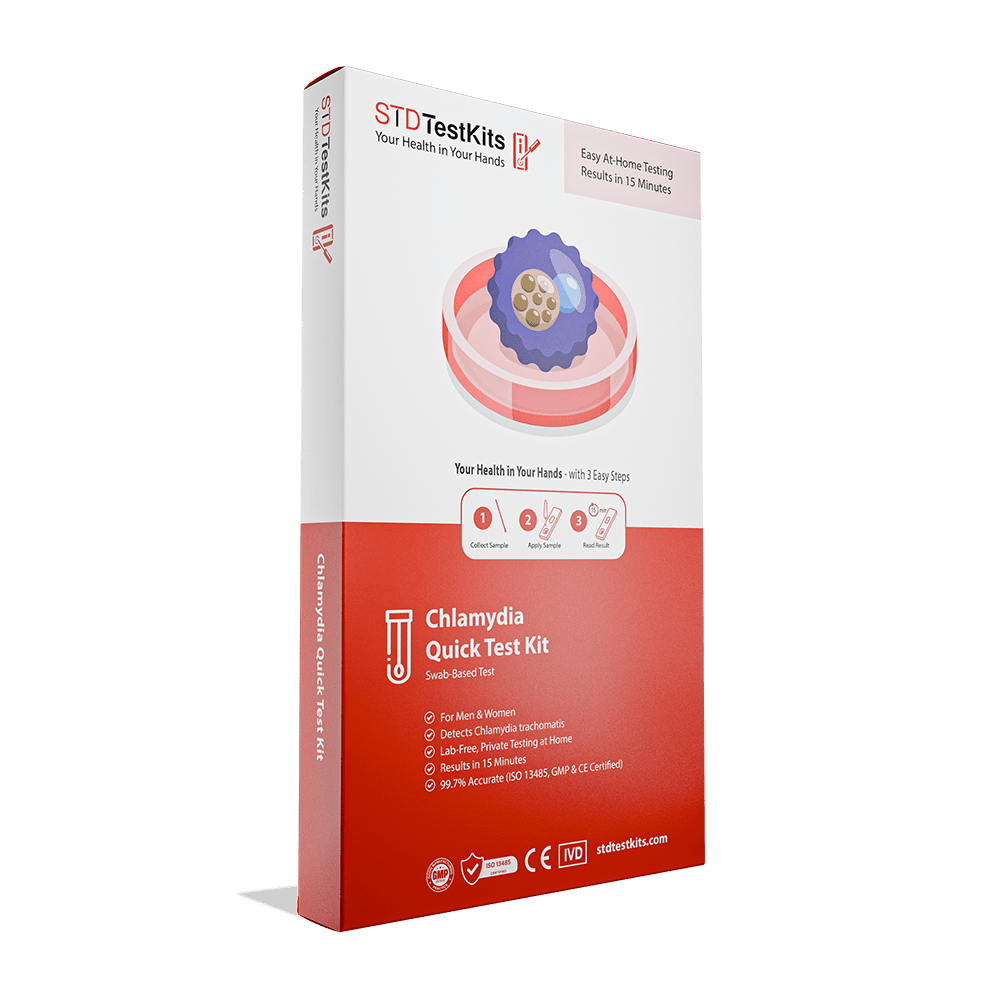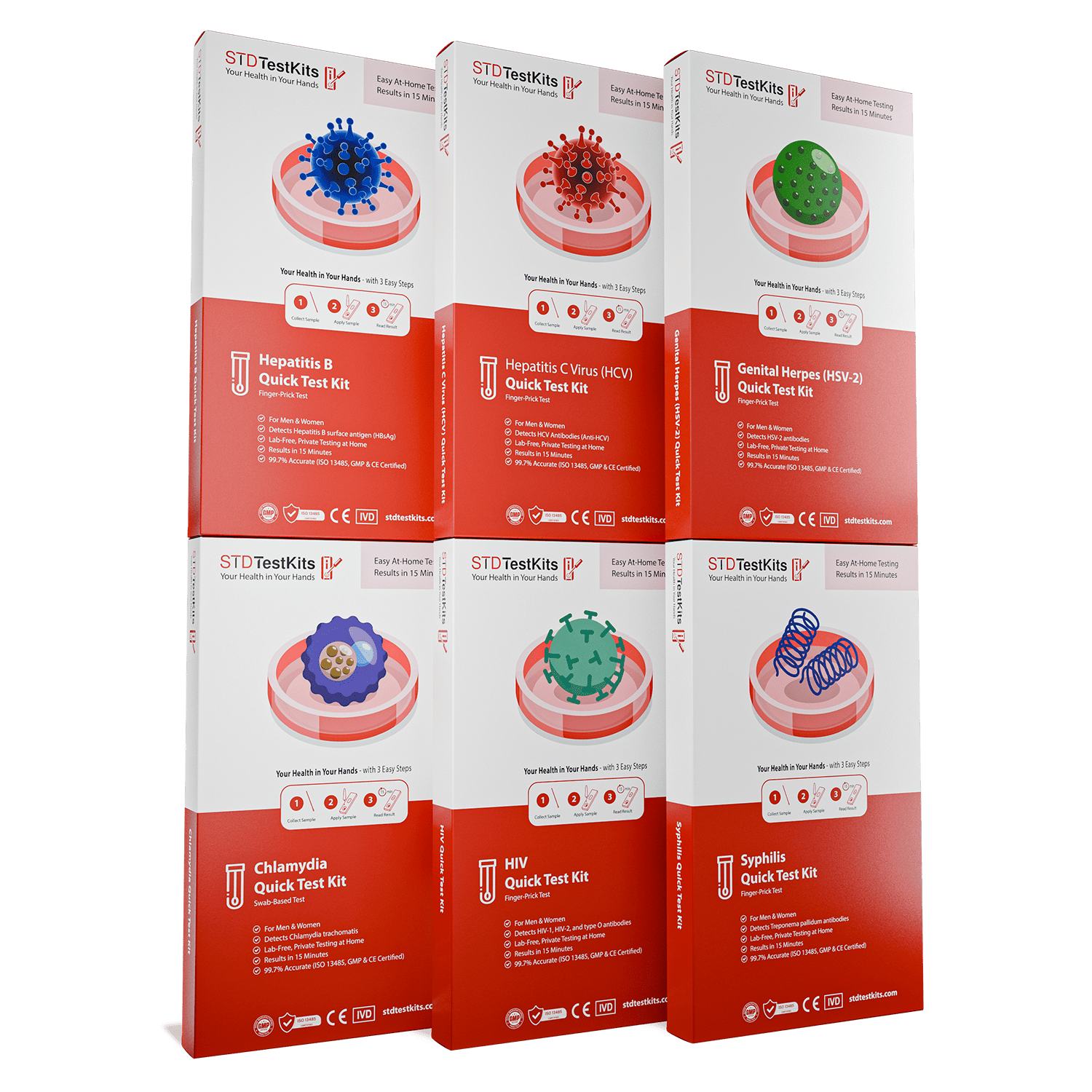Still Positive After Treatment? Here’s What Might Really Be Going On
Quick Answer: Testing positive for chlamydia again doesn’t mean you did something wrong, but it does mean you need to talk to your partner. Reinfection is common, and honest, shame-free communication is key to protecting both of you and breaking the cycle.
When a Repeat Positive Test Feels Like a Gut Punch
Sofia, 28, had tested positive for chlamydia a year earlier. She did everything right, took the meds, told her boyfriend, avoided sex for a week. This time, though, she wasn’t sure if he ever got tested. “I didn’t want to push it,” she said. “We were already shaky from the first time.” So when her at-home rapid test turned up positive again, she felt equal parts rage and shame.
“It was like, how did this happen again? Did he cheat? Did I mess up? I felt like I couldn’t bring it up without it blowing up our relationship.”
She’s not alone. Studies show that up to 20% of people treated for chlamydia will test positive again within a few months, most often because one partner wasn’t treated or because the couple resumed sex too soon after treatment. It's called the “ping-pong effect”, and it can happen to anyone, especially when silence replaces conversation.
Why the Second Time Hurts More (Even If It’s Not Your Fault)
There’s something emotionally sharper about getting the same diagnosis twice. The first time feels like bad luck or a cautionary tale. The second time? It can feel like failure. That’s because we’re taught to associate repeat infections with carelessness or mistrust, but that stigma is medically inaccurate and emotionally damaging.
The truth: chlamydia is one of the most common STDs, and it often spreads silently. Over 70% of women and 50% of men show no symptoms at all. You can reinfect each other even after treatment if one of you wasn’t fully cleared, didn’t finish the meds, or resumed sex too early. This isn’t about blame, it’s about biology.
What makes it harder is the emotional math. You’re now dealing with:
Table 1. Common emotional reactions to a second positive chlamydia diagnosis, and why they can complicate partner conversations.
These feelings are valid. But they don’t have to control the conversation. The goal isn’t to accuse, it’s to protect.
People are also reading: I Thought I Got Tested for Everything, Turns Out I Didn’t
How to Start the Conversation Without Blame or Panic
You don’t have to launch into it mid-dinner or start with “We need to talk.” Think of it like sharing medical news, not making a confession. One way to ease in is by centering your own health journey.
Here’s how that might sound in real life:
“Hey, I tested again just to be sure, and it came back positive for chlamydia. I’m starting treatment today, but we probably both need to get checked so we don’t keep passing it back and forth.”
Notice the tone: calm, fact-based, and forward-looking. You’re not assigning blame. You’re inviting a shared solution.
Timing matters. Try not to initiate the conversation during an argument or when either of you is in a rush. Choose a neutral setting, ideally where you both feel safe. If talking face-to-face feels overwhelming, you can start the convo over text or voice note, then offer to talk more in person. What matters most is honesty and follow-through.
And if you’re scared they’ll freak out? That fear is normal. But silence creates risk. Chlamydia left untreated can lead to pelvic inflammatory disease, epididymitis, and long-term fertility issues in all genders [WHO Fact Sheet]. You’re not being dramatic by bringing it up. You’re being responsible, for both of you.
But What If You’ve Been Monogamous?
This is where things get sticky. If you haven’t had any new partners and your last test was clear, it’s natural to wonder: Did they cheat? Maybe. But there are other possibilities:
Scenario 1: Your partner never actually got treated the first time. They said they would, but didn’t follow through, and you resumed sex. Reinfection happens.
Scenario 2: You both got treated, but started having sex again too soon. Antibiotics don’t offer instant protection, it can take up to 7 days after finishing the meds before chlamydia is fully cleared from the system [Planned Parenthood].
Scenario 3: You were exposed by someone else before your current relationship and the infection took time to show up, or you tested too early the first time and got a false negative.
Scenario 4: Yes, it could be infidelity. But making that assumption without evidence can derail a conversation that should be about health. Focus on care first, accountability can come later.
Frame the talk like a mutual wellness check-in. Reinforce that this isn’t about blaming, it’s about not repeating the same mistake. If they shut down, keep your boundary: “I’m not accusing anyone. I’m just asking us both to get tested again so we stay healthy.”
Want to avoid the clinic altogether? You can discreetly test from home with FDA-approved kits. STD Rapid Test Kits offers private, fast shipping, and your partner doesn’t even need to go to a doctor to confirm their status.
What If They React Badly?
Darnell, 32, thought his girlfriend would understand. Instead, she accused him of cheating, stormed out, and refused to talk for days. “It made me feel like a criminal,” he said. “But I literally hadn’t been with anyone else. I just wanted us both to be safe.”
“Even if I did everything right, it didn’t matter to her. She heard ‘STD’ and lost it.”
Unfortunately, not everyone is ready to have calm, sex-positive conversations about STDs. That’s not your fault. Here’s what you can control:
1. Your tone: Stay steady. Don’t raise your voice or match their panic.
2. Your facts: Tell them that chlamydia is common, that it spreads easily without causing any symptoms, and that this doesn't mean someone is cheating.
3. Your limit: You should share because it's the right thing to do, not because you feel like you have to. It's fine to stop talking to them until they can talk to you with respect if they make you feel bad.
You might say:
“I understand you're upset, and I get it. But I'm not here to fight. I'm here because we both deserve to be healthy and informed.”
This shifts the energy. It reinforces that you’re not here to defend yourself, you’re here to protect both of you.
When You’re Not Sure Who Gave It to Whom
STD timelines are rarely clean-cut. You might test positive a month after a new partner, but that doesn’t necessarily mean they were the source. Chlamydia can incubate quietly for weeks, even months, depending on the person’s immune response and testing windows.
To illustrate just how muddy things can get, here’s a simplified timing scenario:
Table 2. Even with good intentions, overlapping exposure timelines and incubation periods can create confusion and hurt.
That’s why approaching the convo as a shared health responsibility, not a whodunit, helps de-escalate the blame game. You may never know exactly when or how it happened. But you can choose what happens next.
What If They Refuse to Get Tested?
This is one of the hardest situations: when you do everything right, and your partner shrugs it off or flat-out refuses to get tested. That’s not just frustrating, it’s dangerous.
If you’ve already shared your result and recommended they get tested, your work is mostly done. You can’t force anyone. But you can protect yourself moving forward. That may mean delaying sex, using barrier protection more strictly, or re-evaluating the relationship if your health isn’t respected.
Some people respond better to facts than feelings. In that case, you might say:
“Untreated chlamydia can cause serious complications, even if you feel fine. I want us both to avoid that, and testing is the first step.”
If they still resist, consider sending them a discreet test option like this at-home chlamydia rapid test kit. Sometimes making it easy removes the barriers of shame or effort.
And if they still won’t? Protect yourself. You have the right to step away from sexual contact until both parties are informed and treated. That’s not punishment, that’s care.
Scripts That Can Help You Start (Or Re-Start) the Conversation
Not everyone knows what to say in moments like this. So here are a few trauma-informed, emotionally safe ways to bring it up, depending on the situation.
If you're dating casually:
"Hey, I just found out I tested positive for chlamydia. You might want to get tested too, just in case. It’s super treatable, I just wanted to give you a heads up."
If you're in a long-term relationship:
"Something came up on my last test: I tested positive for chlamydia again. I'm not saying you did anything wrong. "I just want us both to be safe, and I hope we can get through this together."
If you're nervous or ashamed:
"This is awkward, but I need to tell you something. I tested positive again for chlamydia. I already started treatment, and I care enough about us to be honest. I hope we can talk about it."
These aren’t scripts to memorize, they’re starting points. Make them yours. Add your tone, your truth, your rhythm. What matters is that you say something.
And remember: speaking up about an STD is an act of care, not failure.
People are also reading: I Might Have Been Exposed to Hep B. What Now?
How to Avoid Reinfection and Break the Cycle
Once you’ve had chlamydia, it’s natural to feel like you're forever on edge. The best protection is clarity and follow-through. Reinfection usually happens when someone skips treatment, tests too early, or returns to unprotected sex too soon. Let’s walk through what helps prevent déjà vu.
Finish treatment: Whether it’s a single-dose antibiotic or a week-long course, don’t stop early, even if you feel better. The bacteria can linger, especially if not fully killed off.
Wait seven days after completing antibiotics before having sex again. Not just seven days after starting, seven days after finishing. That window matters more than most people realize.
Get retested: CDC guidelines recommend retesting three months after treatment, even if your symptoms are gone [CDC Treatment Guidelines]. If you’re in a high-risk situation or experiencing symptoms again, retest sooner.
Test together: If you’re in a relationship or sexually active with one person, try testing as a unit. Not only does it prevent reinfection, it builds trust. And it sidesteps that awkward “did you actually get tested though?” follow-up.
Need privacy? Use an at-home option like the Combo STD Home Test Kit. It's discreet, fast, and checks for multiple infections in one go, because repeat positives often travel with silent co-infections like gonorrhea.
Sex, Trust, and Recovery After Two Positive Tests
After back-to-back positives, it’s common to pull away from sex or feel like your body has betrayed you. You may find yourself questioning everything: Was it worth it? Can I trust them? Am I damaged?
The answer to all of those questions is: you are not broken. You had a treatable infection. That’s it. It doesn’t mean you’re dirty. It doesn’t mean you're bad at relationships. It doesn’t mean your sex life is over.
Aaron, 24, said he didn’t hook up for six months after his second chlamydia diagnosis. “I felt like every time I tried to be intimate, all I could think about was that test result. Like, what if I gave it to someone again?”
“Eventually, I realized it wasn’t the sex I was afraid of, it was the silence. Once I started being upfront from the beginning, everything changed.”
Recovery isn’t just about antibiotics. It’s about reclaiming your comfort with your body and your boundaries. That includes:
✔ Saying no to sex until both parties are tested and treated
✔ Using protection even in committed relationships if you’re unsure of status
✔ Rewriting the narrative: having had chlamydia doesn’t define you, it informs your self-care
FAQs
1. Can I really get chlamydia more than once from the same person?
Yes, way more often than people think. It’s called reinfection, and it’s usually because one person didn’t finish treatment, got mistreated, or thought one negative test meant they were magically safe forever. If you’re sleeping with someone who hasn’t tested (or retested), the bacteria can boomerang right back to you. No drama, just biology.
2. Does testing positive again mean someone cheated?
Not necessarily. We want the story to be clean, someone lied, someone stepped out, but the truth is messier. Maybe you both got treated but had sex before the meds fully kicked in. Maybe one test missed it. Maybe someone never actually got tested but said they did. That doesn’t mean trust is dead, it means communication needs a tune-up.
3. What if I already took the meds, why would I test positive again?
Short answer? Timing or reinfection. If you took the meds but your partner didn’t, or you hooked up before the bacteria was totally cleared, you’re back in the loop. It’s also possible your test caught lingering bacterial fragments, which is rare but not impossible. Either way: treat again, pause sex, and retest later.
4. Can I still spread chlamydia even if I feel 100% fine?
Absolutely. That’s the devilish thing about it, chlamydia is quiet. Most people don’t get symptoms, but they’re still contagious. That’s why regular testing matters, especially after new partners or if you’ve been positive before. Feeling fine doesn’t mean you’re in the clear.
5. How long do I have to wait before I can have sex again?
Wait until you’ve finished your full course of antibiotics, and then wait seven more days. Not “seven days from when you started.” Not “once I feel better.” Seven full days after the last pill. Trust us, it’s worth it. Jumping back in too soon is how people get stuck in the chlamydia carousel.
6. Do I really have to tell someone I hooked up with two months ago?
If they were potentially exposed, yes. Even if it was a one-time thing. Even if you don’t talk anymore. You don’t have to write them a love letter, just a simple message like, “Hey, I tested positive for chlamydia recently. You might want to get checked out too.” Fast, respectful, and potentially life-saving.
7. Will having chlamydia twice affect my fertility?
It might, especially if it wasn't treated for a while. Over time, repeated infections can hurt reproductive organs. But if you catch it early, get the right treatment, and keep up with your tests, you can protect your future. There is no other way to take care of yourself than to get tested.
8. Can I use an at-home test to avoid the awkward clinic trip?
Totally. And honestly, we recommend it. STD Rapid Test Kits lets you test for chlamydia (and other STDs) from your bathroom, no judgment, no awkward waiting rooms, no one calling your name out loud. Just discreet, fast answers.
9. Do I need to retest even if I finished my antibiotics?
Yes. Retesting around three months after treatment is standard, especially if you're sexually active. If you tested again right after finishing meds and got a negative, that’s great, but it doesn’t guarantee you’re safe long-term. Retesting = peace of mind.
10. Should I be scared to date again after this?
No. You’re informed, proactive, and honest, and that makes you a damn good partner. STDs don’t make you “less than.” If anything, surviving the stress of testing positive twice and still showing up for your health? That’s courage. Wear it like armor, not shame.
You’re Not Alone , And You’re Not Broken
Testing positive again, especially for something you thought was behind you, can shake your confidence. It can make you question your choices, your partner, even your worth. But this doesn’t define you. Chlamydia is a bacteria, not a betrayal. It’s common, it’s treatable, and it says nothing about who you are or how lovable you are.
You deserve care. You deserve honesty. You deserve partners who respect your health as much as you do. And you deserve the peace of mind that comes from clarity, not silence.
Don’t let shame write your story. Rewrite it with knowledge, testing, boundaries, and compassion. Start with one honest conversation. That’s how we break the cycle.
Need support taking the next step? This at-home combo test kit can check for the most common STDs discreetly and quickly, no clinic, no judgment.
How We Sourced This Article: We combined current guidance from leading medical organizations with peer-reviewed research and lived-experience reporting to make this guide practical, compassionate, and accurate.
Sources
1. Planned Parenthood – Chlamydia Information
2. World Health Organization – STIs Fact Sheet
3. Retesting After Treatment (CDC)
4. Expedited Partner Therapy (CDC)
5. Chlamydia: Causes, Symptoms, Treatment & Prevention (Cleveland Clinic)
6. WHO Guidelines for the Treatment (WHO via NCBI Bookshelf)
7. Chlamydial and Gonococcal Infections (American Family Physician)
8. Rates of Reinfection for Chlamydia trachomatis in a US Population (ScienceDirect)
About the Author
Dr. F. David, MD is a board-certified infectious disease specialist focused on STI prevention, diagnosis, and treatment. He blends clinical precision with a no-nonsense, sex-positive approach and is committed to expanding access for readers in both urban and off-grid settings.
Reviewed by: J. Holland, RN, MPH | Last medically reviewed: November 2025
This article is for informational purposes and does not replace medical advice.







